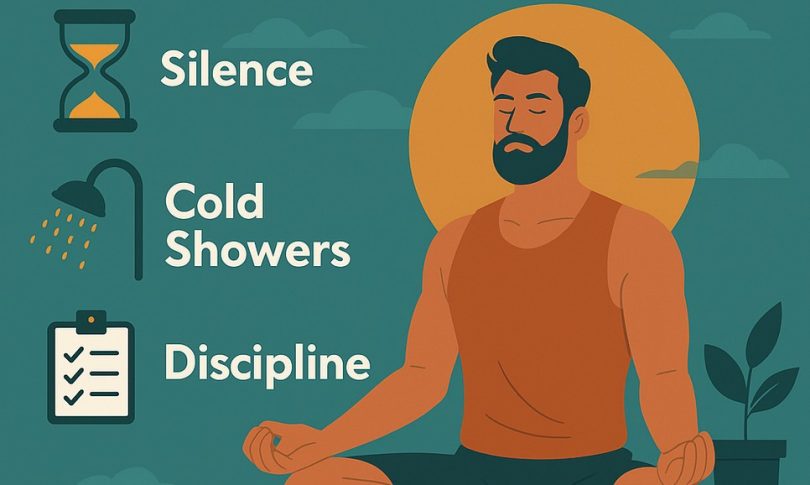Peer relationships play a crucial role in shaping an individual’s social health. From childhood to adulthood, interactions with peers influence various aspects of our lives, including our behaviors, emotions, and overall well-being. However, not all peer relationships have positive effects. In fact, how peer relationships negatively affect social health is a topic of growing concern. In this article, we delve into the detrimental impacts of peer relationships on social health, exploring various aspects such as peer pressure, bullying, toxic relationships, and more.
Table of Contents
- Understanding Peer Relationships
- Social Health: A Vital Component of Overall Well-being
- Negative Impact of Peer Relationships on Social Health
- Coping Mechanisms and Support Systems
Key Takeaways
- Peer relationships significantly impact social health, either positively or negatively.
- Negative peer influences such as peer pressure, bullying, and toxic relationships can lead to adverse effects on social well-being.
- Recognizing signs of negative peer interactions and implementing coping strategies are essential for maintaining social health.
Understanding Peer Relationships
Peer relationships refer to the connections individuals have with their peers, including friends, classmates, colleagues, and acquaintances. These relationships play a crucial role in an individual’s social development and overall well-being. From childhood through adolescence and into adulthood, peer interactions shape our social skills, behaviors, and attitudes. Positive peer relationships can foster a sense of belonging, support, and companionship, while negative peer dynamics may lead to feelings of isolation, stress, and insecurity.
Types of Peer Relationships
Peer relationships encompass various types of interactions, each contributing differently to social health:
- Friendships: Close friendships provide emotional support, companionship, and opportunities for socialization.
- Romantic Relationships: Intimate relationships influence self-esteem, communication skills, and overall happiness.
- Group Dynamics: Interactions within peer groups, such as cliques or social circles, impact identity formation and social acceptance.

Social Health: A Vital Component of Overall Well-being
Social health encompasses the quality of our interactions and relationships with others. It is a fundamental aspect of overall well-being, alongside physical and mental health. A strong social support system contributes to feelings of belonging, fulfillment, and happiness. Conversely, negative peer relationships can significantly impact social health, leading to various emotional and psychological challenges.
Components of Social Health
Social health comprises several key components:
- Social Connectedness: The degree to which individuals feel connected to others and experience a sense of belonging.
- Communication Skills: The ability to effectively express thoughts, feelings, and needs in interpersonal interactions.
- Interpersonal Relationships: The quality of relationships with family, friends, colleagues, and community members.
- Social Support: The availability of emotional, practical, and instrumental support from others during times of need.
Negative Impact of Peer Relationships on Social Health
While positive peer relationships can enhance social health, negative interactions with peers can have detrimental effects. Let’s explore some common negative influences:
Peer Pressure and Conformity
Peer pressure refers to the influence exerted by peers to conform to certain behaviors, attitudes, or norms. It often manifests during adolescence but can occur at any age. Peer pressure can lead individuals to engage in risky or harmful activities, such as substance abuse, reckless behavior, or academic dishonesty.
Bullying and Social Exclusion
Bullying is a pervasive issue in peer relationships, characterized by repeated aggressive behavior intended to harm or intimidate others. It can take various forms, including physical, verbal, and cyberbullying. Victims of bullying often experience profound emotional distress, leading to feelings of isolation, fear, and low self-esteem.

Toxic Relationships and Negative Influence
Toxic relationships are characterized by patterns of manipulation, control, and emotional abuse. In peer relationships, toxic dynamics can erode self-esteem, trust, and emotional well-being. Individuals may feel trapped or powerless in toxic friendships or romantic relationships, leading to prolonged emotional distress.
Peer Competition and Comparison
Coping Mechanisms and Support Systems
Despite the challenges posed by negative peer influences, individuals can adopt coping mechanisms and seek support to mitigate their impact on social health. Here are some strategies:
- Building Resilience: Developing resilience skills can help individuals bounce back from negative experiences and setbacks.
- Seeking Support: Seeking support from trusted friends, family members, or mental health professionals can provide comfort and guidance during difficult times.
- Setting Boundaries: Establishing healthy boundaries in relationships can protect individuals from toxic dynamics and promote self-care.
- Developing Assertiveness: Learning to assert one’s needs and preferences in social interactions can prevent peer pressure and promote autonomy.

Frequently Asked Questions
How do peer relationships affect mental health?
Peer relationships can significantly impact mental health. Positive relationships provide support and companionship, contributing to emotional well-being. However, negative peer interactions, such as bullying or toxic relationships, can lead to stress, anxiety, depression, and other mental health issues.
Can peer pressure lead to long-term consequences?
Yes, peer pressure can have long-term consequences on individuals’ behavior, attitudes, and overall well-being. For example, succumbing to peer pressure to engage in risky behaviors like substance abuse or reckless activities can lead to addiction, injuries, or legal troubles, impacting individuals’ lives for years to come.
What are some signs of toxic peer relationships?
Signs of toxic peer relationships may include manipulation, control, emotional abuse, and lack of respect for boundaries. Individuals in toxic relationships may feel constantly drained, anxious, or insecure. Other signs include a lack of trust, frequent conflicts, and feelings of worthlessness.
How can parents support children facing negative peer influences?
Parents can support children facing negative peer influences by maintaining open communication, teaching assertiveness skills, and validating their feelings. It’s essential for parents to listen attentively, provide guidance without judgment, and help their children develop healthy coping strategies. Additionally, parents can encourage involvement in supportive activities, such as hobbies, sports, or community groups, to foster positive peer relationships.
Is it normal to feel lonely despite having peers around?
Yes, it’s normal to feel lonely despite having peers around, especially if the quality of peer relationships is lacking. Loneliness can stem from a lack of meaningful connections, feelings of isolation, or not feeling understood or accepted by peers. How can peer relationships negatively affect social health It’s essential to address these feelings by seeking supportive relationships and engaging in activities that bring fulfillment and connection.






